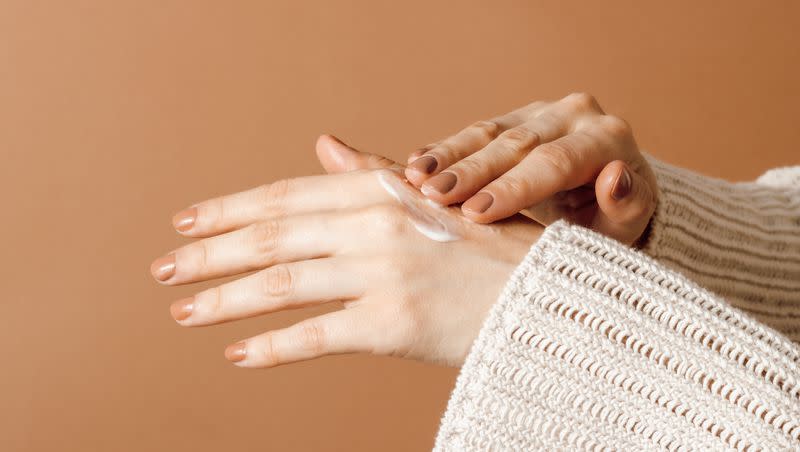How to keep your skin moisturized and healthy in winter weather

The winter months require their own necessary skin care regimens, more than any other season. Dry skin can be a year-round problem for some individuals, with winter making it worse due to the dry weather.
Even if you don’t have dry skin, you might be struggling with dryness during the winter months.
“Cold air holds less moisture. When the environment around you is drier, your skin gets drier, too. And outdoor elements aren’t the only factor — the heaters we turn on when the temperature drops can dry out the indoor air too,” according to Houston Methodist.
Keeping your skin hydrated during the dry winter is important for maintaining its health and preventing dryness, irritation and flakiness. Here are three tips to help keep your skin hydrated:
1. Moisturize often
Use a high-quality moisturizer that suits your skin type. Creams and ointments are usually more effective than lotions in the winter. Also, applying it immediately after bathing can help lock in moisture.
“You should also make sure that the moisturizer you pick contains all three types of moisturizing ingredients,” dermatologist Marie Hayag told Byrdie.
“Humectants (which attract water and trap it into the skin), emollients (which smooth and soften) and occlusives (which create a seal on top of the skin to retain moisture). Of those three, occlusives are especially important for those with dry skin, much more so than for those with other types of skin.”
According to Byrdie, these are the top five moisturizers for dry skin:
Best overall: Vanicream Daily Facial Moisturizer.
Best budget: Cetaphil Daily Hydrating Lotion for Face, With Hyaluronic Acid.
Best drugstore: CeraVe Moisturizing Cream.
Best for older skin: Glow Recipe Plum Plump Hyaluronic Cream.
Best for skin with acne: La Roche-Posay Toleriane Double Repair Face Moisturizer.
Related
2. Use a humidifier
Heating systems can dry out the air in your home. Using a humidifier can add moisture to the air, which can help prevent your skin from drying out.
“One of the most effective ways to combat wintertime dryness is to address the root issue,” according to Olansky Dermatology and Aesthetics. “Humidifiers restore moisture in the air by turning water into steam or vapor. Running one through the winter months can help you achieve and maintain an indoor humidity level of 30% to 50% — ideal for preventing dry skin.”
In addition to directly benefiting the skin, maintaining a balanced humidity level in your living space can also have other health benefits, such as reducing the likelihood of respiratory problems and alleviating symptoms of colds and allergies, Medicine Plus noted.
3. Protect your skin
When going outside, protect your skin from the cold and wind by wearing appropriate clothing. The fabric of your clothing significantly affects your skin, particularly during the winter months. Clothes made from soft materials are ideal for winter as they help prevent the skin from becoming dry and itchy.
Anne Arundel Dermatology recommended the following clothing advice for winter skin:
Avoid wool.
Wear gloves.
Wear breathable layers.
Wear fleece socks.
It’s important to note that everyone’s skin is different, so you might need to experiment to find the best routine for you.
